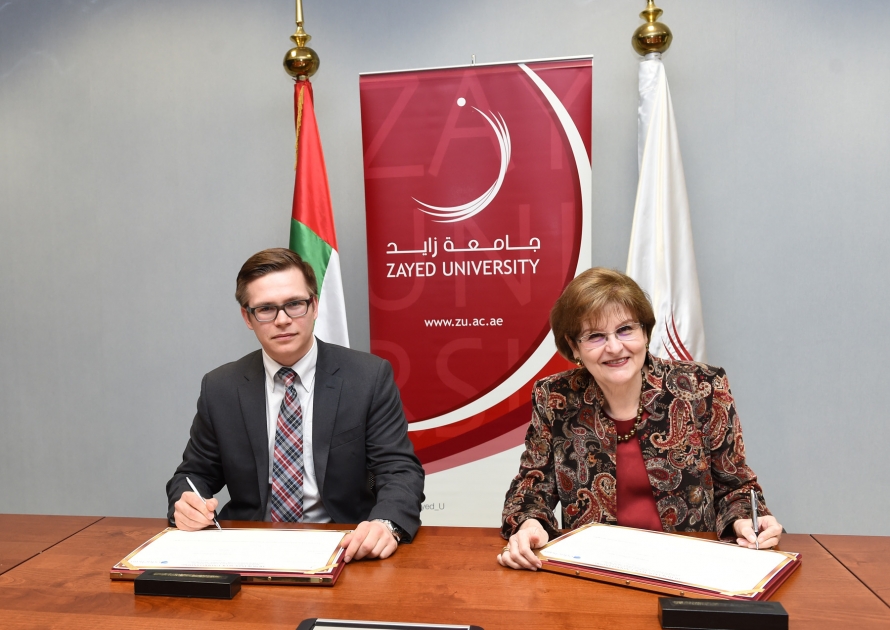
ZU and EduChain Partner for Digitally Formed Students Academic Credentials
Zayed University and EduChain Inc. had recently agreed to jointly handle a pilot project to develop and maintain the issuance of official academic students’ credentials in a shareable, digital format powered by blockchain technology.
The project aims to find effective solutions upon the issuance and management of official academic credentials by reducing cost, time, and errors resulting by typical standards, and thus, aids in reducing academic related frauds.
Dr. Marilyn Roberts, Provost at the Zayed University, said, “Following the directives of His Highness Sheikh Mohammed bin Rashid Al Maktoum, Vice-President and Prime Minister of the UAE and Ruler of Dubai, to spread the culture of innovation across all institutions, the agreement falls in line with the university's agenda of events and mini-festivals to mark the annual UAE Innovation Month 2018.”
She mentioned that the university identifies challenges faced by producing hardcopy credentials. “Through this agreement, Zayed University aims to provide a seamless digital solution for certification and issuing academic credentials, as well as digital fingerprinting and other related metadata in a safe, confidential and in a timely manner.”
Mark Balovnev, CEO at EduChain Inc., said that “The company’s mission is to create a global network of trust for seamless exchange of academic credentials — expanding its presence beyond North America and Europe to the Gulf Region.”
Canadian based EduChain is an innovator in the educational sphere, leveraging new technologies to build software solutions that empower students, institutions, governments, and employers. EduChain’s flagship solution is a comprehensive, digital passport of student academic achievement powered by blockchain technology. It digitizes and places ownership of academic credentials into the hands of the student, and decentralizes the sharing and verification of their credentials.
“Institutions get a comprehensive tool to issue official academic credentials digitally, and automate their verification. This allows them to virtually eliminate credential processing time and costs, reduce the complexity of internal processes, and provide more flexibility for students and staff,” he said.


























